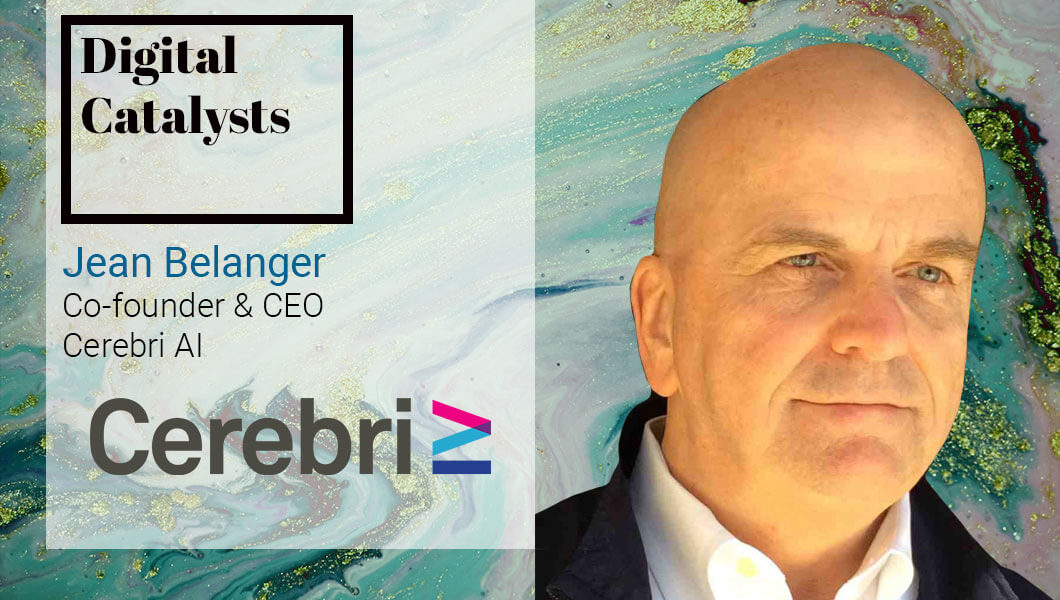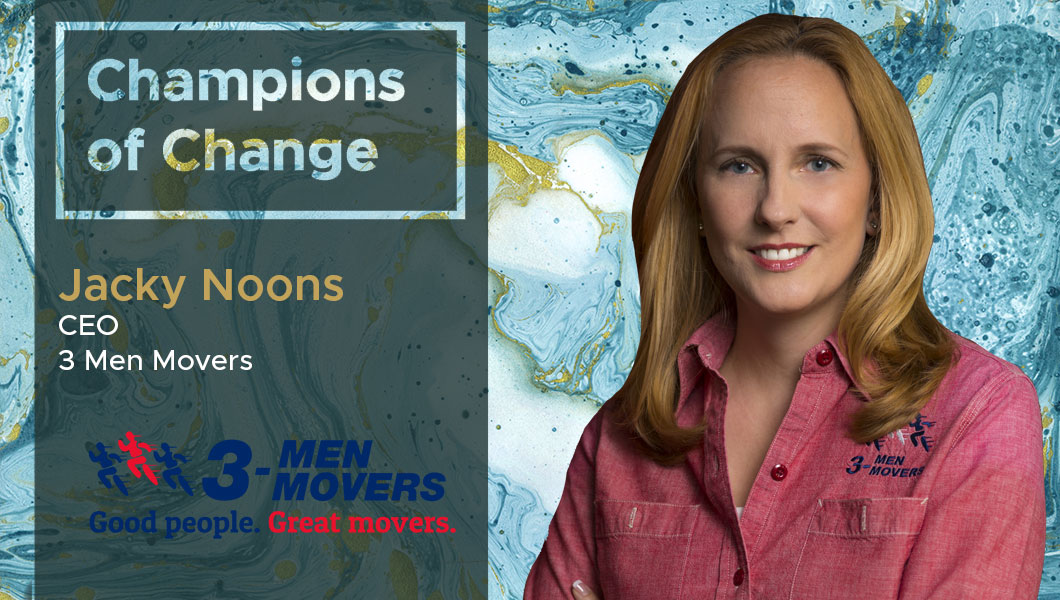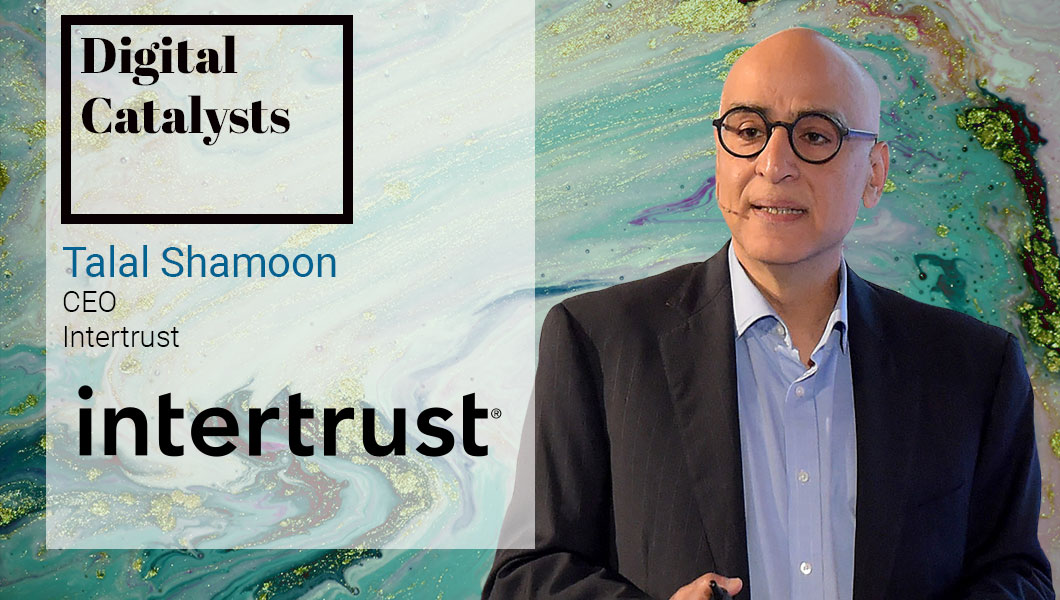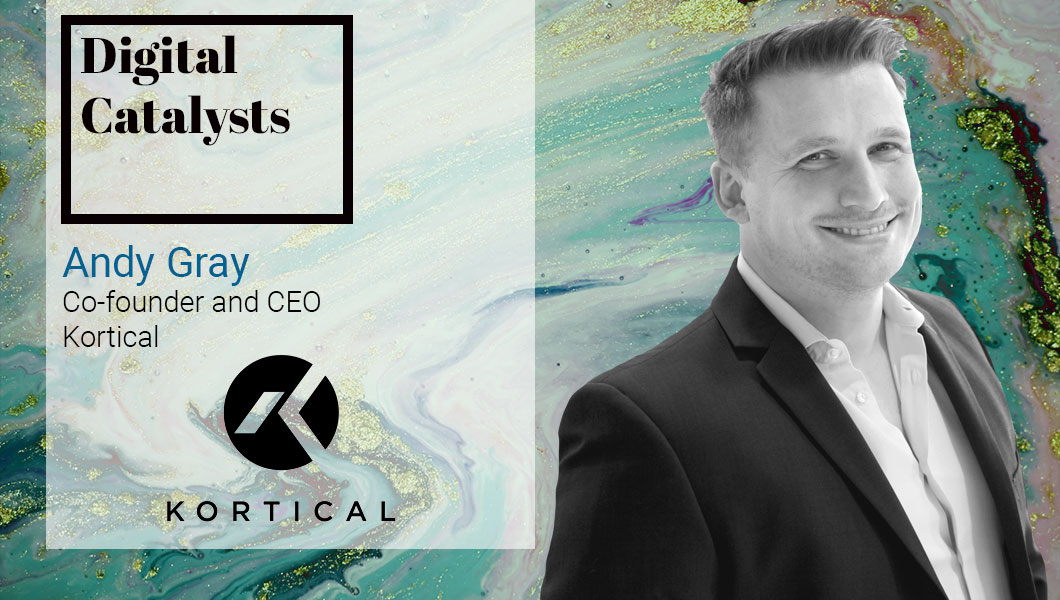Interview with Jean Belanger, Co-founder and CEO of Cerebri AI

In this interview, Jean Belanger, Co-founder & CEO of Cerebri AI, suggests why brands today need to master the old-school customer service at scale and the critical role of artificial intelligence and machine learning in this. Jean, has been a key player in the software industry, with many successes, firstly at Metrowerks, which went public on NASDAQ and was later sold to Motorola. Next came Reddwerks, an Internet of Things solution provider to major retailers including Walmart, CVS, and Best Buy. And now, Cerebri AI since 2016. Jean holds an MSc in Finance from the London School of Economics
TDE: Tell us about your product/business and your specific role?
Jean Belanger: I am a co-founder and CEO of Cerebri AI. We started our journey at the Capital Factory accelerator in Austin, and expanded to Toronto and Washington DC. Over the past three years, Cerebri AI has revolutionized the way major enterprises and organizations engage with their customers and users, with the introduction of the Cerebri Values TM system, the first universal measure of customer experience.
We build customer journeys and we measure customer experience, using our patent-pending AI technology. We extend this to provide insights in the form of Cerebri Actions, the next best actions (NBA) to take with a customer and end user. We measure commitment to our customer’s brand and product, or group of products, and we score the important customer-related key performance indicators (KPIs) that make a difference.
To date, we have focused on the automotive and financial services sectors, but the Cerebri Values system has universal applicability. Our current clients include a leading North American bank, a global payments solutions provider, and two of the top 10 global auto OEMs. M12 Ventures (formally Microsoft Ventures) was the lead investor in our last financing round.
TDE: What is the core issue your product/technology aims to address and what sets it apart from the other players in the market?
Jean Belanger: The advent of high-speed mobile internet fundamentally and irrevocably changed the way people buy. Customers are two swipes away from a list of reasons why they should switch to your competitor. In this new world, companies cannot afford to cast a broad promotional net, sit back and hope for the best – the key to success is predicting what customers want right now, matching individuals to the best-value-offer. This is old-school customer service at scale, powered by artificial intelligence and machine learning.
As AI penetrates our economy, we are moving from a world where we think we have too much data to a world where we will never have enough data.
In the realm of predictive customer analytics, at Cerebri AI we see transactional data (sales, marketing, support) as the cornerstone, supplemented by external sources (social media, macroeconomic shifts, etc.). In the race to stay ahead of Amazon.com, Fortune 500-caliber B2C enterprises need to leverage their vast amounts of customer data as a competitive advantage.
One of the most glaring gaps we see in business today is the lack of a single, actionable measure for customer experience. Net Promoter Score (NPS) is the de facto standard today, but any metric based on surveys is inferior to a scalable model that can impute a value based on facts alone.
With our patent-pending Cerebri Values system, we begin by assembling individual, comprehensive, data-driven customer journeys composed of a wide variety of events over time. By comparing millions of journeys and billions of events using trillions of calculations, our machine-learning model quantifies each customer’s commitment to the brand in a single metric, the Cerebri Value, using dollars (or local currency) as the unit of measurement.
But wait, there’s more! We call the Cerebri Values system the new science of customer experience, because it not only builds customer journeys to measure customer commitment, but it also makes predictions that puts individual customers into groups, or cohorts, based on their likelihood to buy a specific product/service. Cerebri Values matches customers with offers in near real-time to deliver maximum value to both parties.
In early results from a Top 10 global automaker, the Cerebri Values system delivered 7x the sales conversion as compared to their standard top-down marketing approach. In addition to B2C, we are also making headway in the financial services sector and government, which we call G2C. And this is just the beginning of our own journey as a company.
TDE: What’s the one industry, sector or role that your technology is most relevant to?
Jean Belanger: The Cerebri Values system is applicable to major enterprises and public organisations, with large data repositories of customers and user information. As outlined above, the largest enterprises and public organisations cut across all manner of demographic and transactional data, including customer, user profiles, and marketing, sales, service and other data. These data sources are supplemented, wherever possible, with macroeconomic, social media and other external data, that is relevant to the circumstances.
With time, millennials will account for a bigger portion of the buying pool across a range of services, whether it is getting a mortgage from a bank, booking an oil change at an automotive dealership, or getting an auto renewal of a phone plan. With millennial expectations of doorstep delivery and a hassle-free customer experience, the need is becoming even more significant, across all traditional industry verticals of financial services, automotive, retail, telecom, insurance etc.
TDE: What are some of the common challenges your customers approach you with?
Jean Belanger: Data privacy is always an issue. One of the issues is how to best protect customer data and comply with regulation, while still being able to iterate on an improved customer engagement process. Cerebri AI goes to great lengths to integrate and nourish that trust in the partnership with an enterprise organisation. Cerebri Values system operates behind the corporate firewall, ensuring the highest level of security, reliability and accountability.
One great things about our Cerebri Values system is that we do not need to replace existing corporate systems, all we need is the data that these systems generate and store for long periods of time.
TDE: Using technology to affect transformation usually starts with a transformation of beliefs and mindsets. How do you consult enterprise clients and help them make that important shift in mindset to move ahead on a particular project or implementation?
Jean Belanger: Leaders become leaders because they are good at making decisions. Some leadership posts require many important decisions every day. Some require only one or two major decisions in a tenure in the post. New semiconductor facilities cost billions of dollars, these new factories are decided upon only every few years. Customer-related decisions come fast and furious.
Every business leader we meet the world over, knows that AI helps leadership make decisions. The Wall Street Journal and the Financial Times (of London) include detailed articles on a daily basis by reporters and experts describing how AI is going to transform their world. Most days, the same articles say something negative about the terrible impact AI is going to have on people, unemployment, jobs, etc. However, most major enterprise leadership teams are totally focused on reducing headcount and expenses to satisfy the financial mavens of Wall Street, Bay Street, or the City in London. AI helps teams to make decisions and helps to reduce costs. Exactly the challenges that leadership in most enterprises want to move on.
The negativity vis-à-vis AI is totally misplaced and most leadership teams we meet understand this. AI has a dramatic impact on productivity, and productivity is the ‘mother’s milk’ of progress, both in the private sector and in government. There will be jobs lost, but many higher-paying job gains. Great leaders are brave, and after the terrible trauma of the financial crisis of 2008, most leadership teams we meet are ready to go on AI. Some are spending more resources on this than others, but it is rare to get a flat-out no, “we are not interested using internal resources or spending on vendor solutions for AI technologies”. I have lived through the introduction of the PC, mobile telephony, the Internet, and social media, and it is my view AI will be most important of all. Every aspect of life in our already high-tech economy will be affected by AI, sooner, rather than later.
Leadership teams are well aware of the massive impact that AI will have, not only on their products and services, but also on their customers. The challenge is not so much on the ‘why’, but on the ‘how’. Enterprise clients are curious to see the application of AI on to conventional work streams that they have relied on for decades. And so, for Cerebri AI, we ensure that we not only provide them the success that they demand, but also educate them on how to do things in a new way that is faster, efficient, and also simple. For instance, Cerebri Values empowers dealerships and OEMs to be well informed about their customer as they visit the store, in addition to the customer being well informed on the car they might want to buy.
TDE: Give us an example of an enterprise meeting a digital transformation goal through your product?
Jean Belanger: As outlined above, we are turning large enterprises and public organizations into proactive entities. Proactivity, in terms of marketing, sales and service, means understanding customer behavior at its core. So, our customers are starting down the path of anticipating their customer’s needs at the individual customer level. Our Cerebri Values system makes this come alive, one customer at a time, in dollars and cents.
Traditional customer analysis at scale has meant looking top down at customers and segmenting them by gender, age, etc. Once accomplished the different segments would be targeted for action in marketing, and even sales and support. When we install the Cerebri Values system, we try and include in encompasses all digitally recorded information an enterprise or public organization
TDE: What present or upcoming technologies you think have the maximum potential to accelerate enterprise digital transformation?
Jean Belanger: Machine Learning and AI. Cerebri AI is my second data science startup since 2000. Data science is the biggest technical discontinuity since the invention of the microprocessor. Everything depends on Moore’s Law, but today, we are at the dawn of a new age. My first data science efforts used operations research-based mathematics to optimize the operations of those ugly million square foot distribution centers, that you see alongside our interstate highways. Those models were hard wired, which made scaling the business difficult, at best. Cerebri AI uses machine learning to build its models and the “learning” in machine learning is the key. Our models learn over time, and if properly constructed, can last for a long time.
TDE: What’s your go to resource – websites, newsletters, any other – that you use to stay in touch with the explosive changes happening in the digital space?
Jean Belanger: I read the Wall Street Journal and Bloomberg for news on our Fortune 500 customers, and for general economic news of the day. They are behind paywalls, but well worth the investment. For specific information on our vertical markets, I read Automotive News and the Financial Times (of London).
For news on the technology business and trends in the digital space, I read TechCrunch, CNET, Medium, the WSJ CTO report. I also read many detailed reports on specific areas of technology, such as Krebs on Security, etc.
TDE: Read a good book lately on digital transformation that you’d like to recommend to us
Jean Belanger: I generally shy away from reading too many business books, or future prediction books, more precisely. I listen to our customers and they are usually a better indicator of where the world is going, than books that are often out of date, before they are printed.
For more DX insights follow Jean Belanger on LinkedIn.


 By
By 





